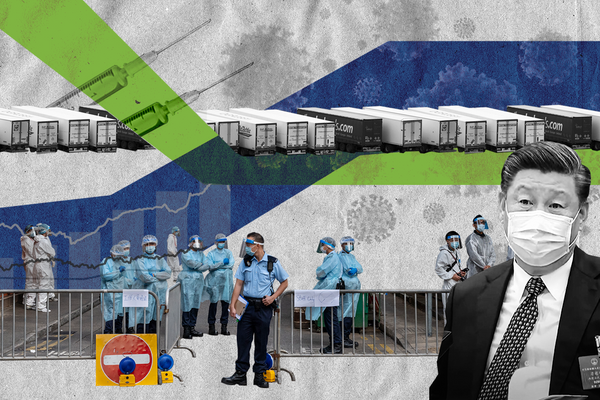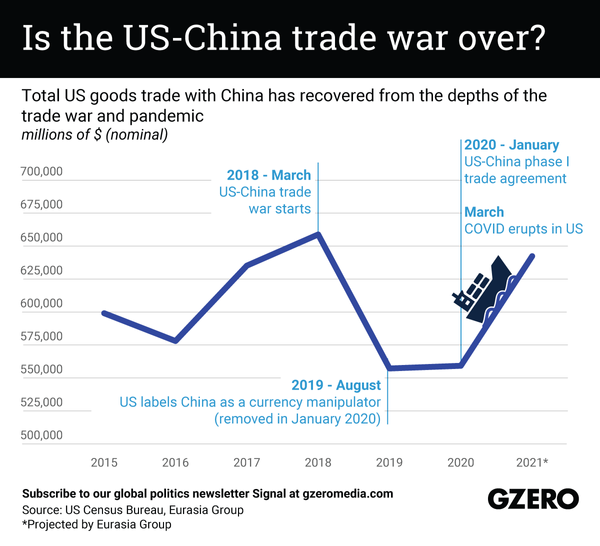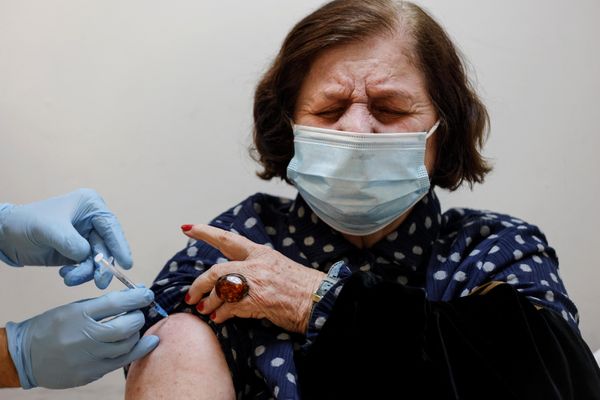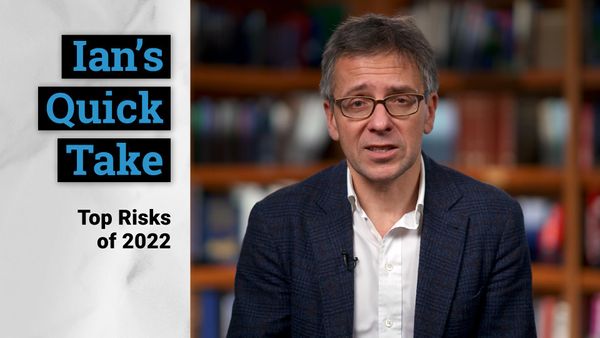When Eurasia Group, our parent company, released its Top Risks report for 2022 on Monday, readers might have been surprised to see COVID at the very top of the list.
Yes, omicron has sent case and hospitalization numbers surging once again in dozens of countries, but the prevailing mood among many analysts has been positive. After all, this latest variant is thought to be less dangerous than previous COVID variants, and much of the developed world has been vaccinated (and boosted) with remarkably effective vaccines. Some have speculated that “Omicron is the beginning of the end” of the pandemic.
Unfortunately, optimism in the US and Europe stands on shakier ground in other regions. China, in particular, may be facing an especially rough year.
Poorer countries will continue to be hit hardest, in part because omicron increased demand for booster shots in the US and Europe will further delay the day when the most effective vaccines are widely available elsewhere. To date, just 8 percent of people in developing countries have received even one vaccine dose.
There will also be further economic damage as poorer governments take on more debt to spur recovery and political fallout as people lash out at their governments.
But the most provocative part of this 2022 COVID story – and the entire report – is Eurasia Group’s surprisingly dark view of what’s about to happen in China.
Beijing’s “zero-COVID” policy was a major public health success story in 2020. As Americans, Europeans, Indians, and others struggled with surging numbers of deaths, overwhelmed hospitals, and political fury, the ability of China’s leaders to lock down millions of people and use cutting-edge surveillance technology like track-and-trace apps to enforce its restrictions sharply limited the numbers of infections and deaths. In 2021, China was forced to impose and enforce many more quarantines, but the policy held up relatively well.
But in 2022, argues Eurasia Group, China will face highly transmissible omicron with apparently less effective vaccines and far fewer people protected by antibodies created by previous infections. This year’s COVID outbreaks in China may not set records for deaths, but they will be larger, and “zero-COVID” lockdowns will be more severe and involve tens of millions more people. This crisis will continue until China can roll out domestically developed mRNA shots and boosters for its 1.4 billion people, which still appears at least a year away.
That, according to Eurasia Group, will mean a lot more economic disruption and maybe rising public anger – at a time when President Xi Jinping wants to formally extend his time as leader and roll out more reforms designed to maintain and extend the state’s reach into daily life across the country.
Eurasia Group’s call will be controversial – and might well be proven wrong. After all, there’s still uncertainty about omicron and the ability of China’s existing vaccines to prevent serious illness. The government might try to relax the zero-COVID policy and effectively hide the fallout. More to the point, China has proven for decades that its authoritarian political system creates a degree of political control we don’t see in other major countries, either democracies or other authoritarian states. As China becomes much more technologically innovative, its government and public security have ever-more-effective tools to maintain that control.
But if China really is in for a rough ride, outsiders should resist any temptation to gloat. After all, China is still the world’s primary engine for global growth, and shuttered factories, more global supply chain disruptions, canceled flights, and lower demand for the rest of the world’s exports will be bad news just about everywhere.










